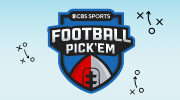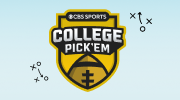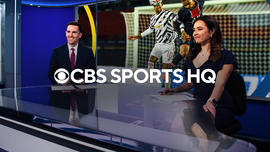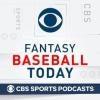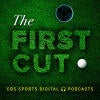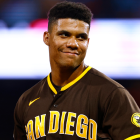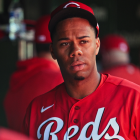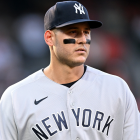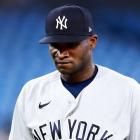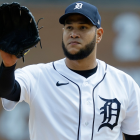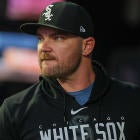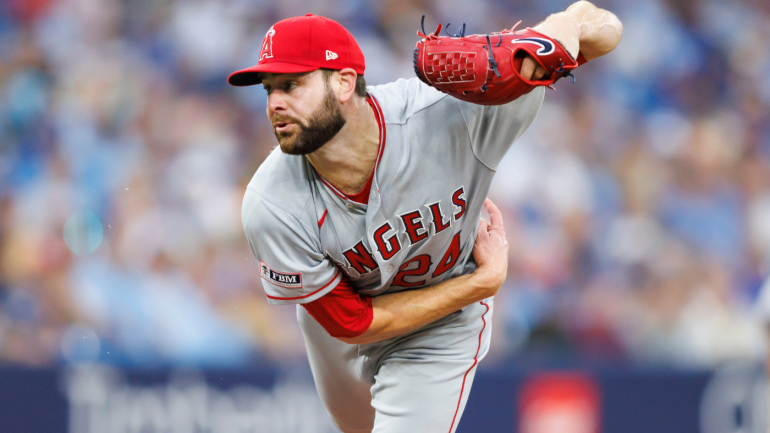
Major League Baseball's trade deadline officially passed on Tuesday at 6 p.m. ET. As has been the case since the league did away with the old August waiver trade period, teams are now restricted in how they can make outside additions for the remainder of the season. (There are exceptions, but they're rare and they almost never make a meaningful difference for a club.)
So, how did your team fare? Below, CBS Sports has answered that question by dishing out grades for all 30 clubs. We make no promises about how these analyses will age other than to guarantee that some of this will prove to be wrong. That's the reality of these exercises. Our recommendation is to take it for what it is -- a snapshot in time -- and keep on stepping. Besides, every minute you spend slowly scrolling down this page is a minute you're spared from experiencing or otherwise confronting a full-blown existential crisis. You're welcome.
Now, onto the gasbaggery. (Do note that you can view a recap of every deadline trade by clicking here.)
| | |
| We're surprised the Diamondbacks were able to land Paul Sewald, a premium late-inning reliever under control for another season, without sacrificing anyone they're likely to miss. The Jace Peterson addition won't generate as many eye emojis, but he's a quality defender capable of modest production against right-handed pitching. In other words, he should fit nicely in a third-base platoon with Emmanuel Rivera until Evan Longoria returns. Tommy Pham and Peter Strzelecki were nice late gets, too. Grade: A. | |
| | |
| The Braves didn't have many needs, but they did make a couple solid additions to their bullpen by acquiring Pierce Johnson and Brad Hand. Turning Taylor Hearn into Nicky Lopez was a nifty trick, too. Given that Atlanta's activity was limited by the quality of their roster, and not a desire to improve, we feel inclined to give them a passing grade. Grade: B. | |
| | |
| The Orioles added two right-handers to their pitching staff: Shintaro Fujinami and Jack Flaherty. Those moves are fine, and they certainly fit with the way this front office has approached past opportunities to upgrade their roster. If you were in the camp that wanted to see Baltimore take a bigger swing, or consolidate some hitting prospect depth into a front-of-the-rotation arm, well, you're out of luck. Grade: C. | |
| | |
| We absolutely dig taking a chance on Luis Urías. He's had a down season, but he has compiled more than six Wins Above Replacement combined over the last two years. That's the kind of buy-low move that can pay major dividends in a hurry. We also think the arms they received from the Dodgers for Enrique Hernandez are interesting enough. It was a fine, if otherwise uneventful deadline for Chaim Bloom. Grade: B. | |
| | |
| Jeimer Candelario was the big addition for a Cubs team that decided to buy late. He was the best third baseman on the market and should give the Cubs a boost at both infield-corner positions. José Cuas is somewhat intriguing, too: a funky right-hander who misses a ton of bats. Maybe you can argue they should've been more aggressive, but this seems OK to us. Grade: B. | |
| | |
| The White Sox jumped ahead of the market to settle most of their big business. They did well in fetching catcher Edgar Quero and pitchers Ky Bush and Nick Nastrini in return for Lucas Giolito, Reynaldo López, Lance Lynn, and Joe Kelly. Quero in particular is a nice get, as a potential top-50 prospect with a promising bat. Fellow catcher Korey Lee, acquired for Kendall Graveman, could slot onto the big-league roster as soon as this season. He has a big arm and above-average pop, but his approach limits his upside. Grade: A. | |
| | |
| There was some thought around the industry that the Reds might make a splash this deadline to take advantage of their first-place standing. Not so much. Funky lefty Sam Moll gives manager David Bell another solid reliever to call upon. Otherwise? They'll proceed with largely the same roster. It's disappointing that they couldn't -- or didn't -- find a rotation upgrade. Grade: D. | |
| | |
| We were confused by the Guardians' decision to swap Amed Rosario for Noah Syndergaard. The rest of their deadline wheeling and dealing was fine in our estimation. Kyle Manzardo, a contact-over-power first baseman, has a chance to provide a boost to Cleveland's lineup once he heals up from a shoulder injury. Trading Josh Bell's contract for Jean Segura's (plus diminished former first-round pick Kahlil Watson) was also fine. Did any of this help the Guardians' chances of winning the Central this year? No, not really. Grade: C. | |
| | |
| We were tempted to give the Rockies an A+ for making a couple of trades after last year, but we'll forgo the easy joke and note that they did get a few interesting arms from the Angels system in exchange for C.J. Cron and Randal Grichuk and from the Braves for Brad Hand. We'll focus on the pair from the Angels here. Jake Madden is a strapping righty with good stuff and bad command; Mason Albright is a little left-hander who pitched well in A-ball. Is either likely to become a meaningful contributor for the Rockies? Probably not, but there was little reason to hold onto Cron and Grichuk and the Rockies recognizing as much is a step in the right direction. Grade: C. | |
| | |
| The Tigers managed to trade one rental starter, sending Michael Lorenzen to the Phillies for Hao-Yu Lee, an interesting bat-first infield prospect. Eduardo Rodriguez prevented them from dealing him to the Dodgers by invoking his no-trade clause, as is his right. We were surprised Detroit didn't move any relievers. Grade: C. | |
| | |
| The Astros' deadline was all about reunions, first with reliever Kendall Graveman, then with ace Justin Verlander. We're sure Houston would've liked to find a trade sending out an excess outfielder. It's hard to knock what Dana Brown did at his first deadline as it pertains to improving his team's chances of repeating as World Series champions, however. Grade: A. | |
| | |
The Royals made the weirdest trade of the deadline when they shipped infielder Nicky Lopez to Atlanta for lefty reliever Taylor Hearn, who had been acquired by the Braves just a week earlier for cash considerations. You've heard of positive arbitrage; this is a case of negative arbitrage. We'll grant that Lopez was unlikely to yield much of a return himself regardless -- he's an obvious non-tender candidate -- but optics matter. The Royals did get an interesting arm back from the Padres for Scott Barlow in Henry Williams. Grade: D. | |
| | |
| Once the Angels decided to keep Shohei Ohtani, they went into buy mode. That approach netted them Lucas Giolito, Reynaldo López, C.J. Cron, Randal Grichuk, and Dominic Leone. The Angels' capacity to upscale was limited by a weak farm system, but we think they did about as well as could've been reasonably expected at patching over some holes on their roster. If and when Ohtani leaves, they'll need to reset anyway, so why not take their chances? Grade: A. | |
| | |
| The Dodgers have a history of pulling off star-laden deals at the deadline. Not so much this time. They played it safe with some mid-tier veteran additions like Lance Lynn, Joe Kelly, Amed Rosario, and Enrique Hernandez. The late addition of Ryan Yarbrough was an OK hail mary in response to failing to convince Eduardo Rodriguez to waive his no-trade clause. Overall, we mostly liked these moves, but it did feel like the Dodgers were a big move short of a great deadline. Grade: B. | |
| | |
| We like the idea of the Marlins taking a few swings in an effort to hang in the wild-card race, but we can't shake the feeling that their deals for reliever David Robertson and infielder Jake Burger will age poorly -- namely because the Marlins should've been able to gain better players in return for who they gave up. Other front offices have identified infielder Marco Vargas, part of the Robertson payout, as a prospect on the rise. Meanwhile, lefty Jake Eder was a steep price to pay for Jake Burger, who will add significant power to Miami's lineup but has just two points of on-base percentage on Jean Segura. We're also not sure that installing Josh Bell in Garrett Cooper's place will make a huge difference, but we can understand the thinking there. Grade: D. | |
| | |
| The Brewers are set to embark on a big offseason, during which they could be forced to trade one or more of Willy Adames, Corbin Burnes, and Brandon Woodruff. You wouldn't know it based on their deadline. Andrew Chafin, Carlos Santana, and Mark Canha are fine, if sleepy additions. It was a little surprising to see them punt on Luis Urías, but we suppose they must've viewed him as a non-tender candidate. We would've liked to have seen more sense of urgency, but the Brewers ought to remain in the thick of the NL Central race. Grade: C. | |
| | |
| The Twins did not engage with the deadline beyond swapping out Jorge López for Dylan Floro. We like that deal for the Twins, since it seems to use that Floro just needs a better infield behind him to be good again. Still, for that to be their only move seems like a misfire considering the closeness of the American League Central race. Grade: F. | |
| | |
| The Mets have received a lot of praise for their deadline pivot from other clubs. We've gone into greater detail on both the Max Scherzer and Justin Verlander returns elsewhere, but don't sleep on the two young players they received for rental closer David Robertson: infielder Marco Vargas and catcher Ronald Hernandez. Vargas in particular could prove to be a steal based on his statistical indicators this season. Grade: A. | |
| | |
| We think Keynan Middleton is a perfectly solid addition who could be even better than that if he gets his home-run rate in order. But we confess that we were certain the Yankees would do more than this, either buying or selling. Practically standing pat seems to us to be the absolute worst option for a team in this state. Grade: F. | |
| | |
| The A's didn't have many notable pieces left to move, leaving them to fill a minor role at the deadline. They did send righty Shintaro Fujinami, lefty reliever Sam Moll, and infielder Jace Peterson packing for returns that are unlikely to matter. Grade: C. | |
| | |
| Dave Dombrowski is known for making flashy trades. The two he made this week weren't that, but they could prove to be solid. Michael Lorenzen, for instance, should help stabilize the back of the Phillies rotation. Rodolfo Castro, meanwhile, is an upgrade over Josh Harrison with some surprising raw power. Maybe Kevin Long can unlock more of it on a consistent basis? Grade: B. | |
| | |
| The Pirates moved a slew of veteran rentals, including first basemen Ji-Man Choi and Carlos Santana and left-hander Rich Hill. The returns were fine for what the Pirates were dealing. Tall lefty Jackson Wolf could slot into their rotation immediately, and switch-hitting teenage outfielder Estuar Suero is a lottery ticket thanks to his projectable frame, above-average power, and significant hit-tool concerns. Grade: C. | |
| | |
| We kept waiting on A.J. Preller to do something big. He didn't. He settled instead for adding Rich Hill, Ji-Man Choi, Scott Barlow, and Garrett Cooper. We think each move has merit. Hill will help solidify the back of San Diego's rotation; Choi and Cooper should be an upgrade at DH over Matt Carpenter; and Barlow gives San Diego another tantalizing late-inning arm. Splashy? Hardly. Effective? We think it should be. Grade: B. | |
| | |
| The explanation for this grade is straightforward: we felt the Mariners did not get enough in return for Paul Sewald. Josh Rojas seemed like a non-tender candidate; Dom Canzone is nearly 26 with no big-league track record; and Ryan Bliss draws mixed reviews from rival talent evaluators. That feels too light for a season-plus of a dominant high-leverage arm. Grade: D. | |
| | |
| Maybe the Giants think they can get more out of AJ Pollock? Farhan Zaidi certainly deserves some benefit of the doubt, so we might end up looking foolish on this one. That established, it's hard to get excited about a deadline where the only notable addition is a 35-year-old outfielder with a 53 OPS+ -- especially when some of the teams they're competing for in the wild-card race made more significant upgrades. Grade: F. | |
| | |
| The Cardinals entered the deadline as inexperienced sellers. They seemed to do just fine in the role, nabbing pitcher Tekoah Roby and infielder Thomas Sagesse from the Rangers in the Jordan Montgomery deal. Roby was having a breakout season before suffering a shoulder injury and has mid-rotation upside. Sagesse, meanwhile, is an analytics darling who could continue to overachieve en route to becoming a starter at second or third base. Even ignoring the rest of St. Louis' deadline business, that return alone earns them a high mark. Grade: A. | |
| | |
| The Rays mostly danced on the margins, making more minor-league trades than big-league ones. The one veteran they did add to the roster was Aaron Civale, who is either a candidate to improve or regress, depending on your perspective. Civale does have a good curveball that he could stand to throw more; he's had his strikeout rate, walk rate, and average exit velocity marks head in the wrong direction this season compared to last, however, and that's while facing a weaker crop of opponents than he'll see moving forward in the AL East. The Rays certainly needed a starter, and they have the first-base depth to shed Kyle Manzardo and come out the other side OK. Grade: B. | |
| | |
| The Rangers were able to secure Max Scherzer and Jordan Montgomery, two above-average starting pitchers, plus a potentially useful reliever in Chris Stratton without compromising their ability to make further additions, be it through trade or free agency. That's a win in our books. Plus, we like it when teams try to take advantage of unexpectedly good hands. Few expected the Rangers to be in first place heading into August. Will they be able to stave off the Astros? There's no way of knowing for sure, but Chris Young's wheeling and dealing certainly improved their chances. Grade: A. | |
| | |
| We liked Toronto's addition of Jordan Hicks, who has been excellent dating back to early May, and understood their acquisition of Paul DeJong. Will that be enough for them to win a wild-card spot? We're not so sure, even if they clearly have the talent to do so. The Blue Jays' apparent disinterest in the starting pitcher market makes us think they have more confidence in Alek Manoah getting straightened out than we do. Grade: C. | |
| | |
| The Nationals somehow made just one trade, shipping third baseman Jeimer Candelario to the Cubs for lefty DJ Herz and shortstop Kevin Made. We were surprised they didn't get more back given the dearth of quality hitters available, and even more surprised they didn't move Lane Thomas or Kyle Finnegan. Grade: D. | |
